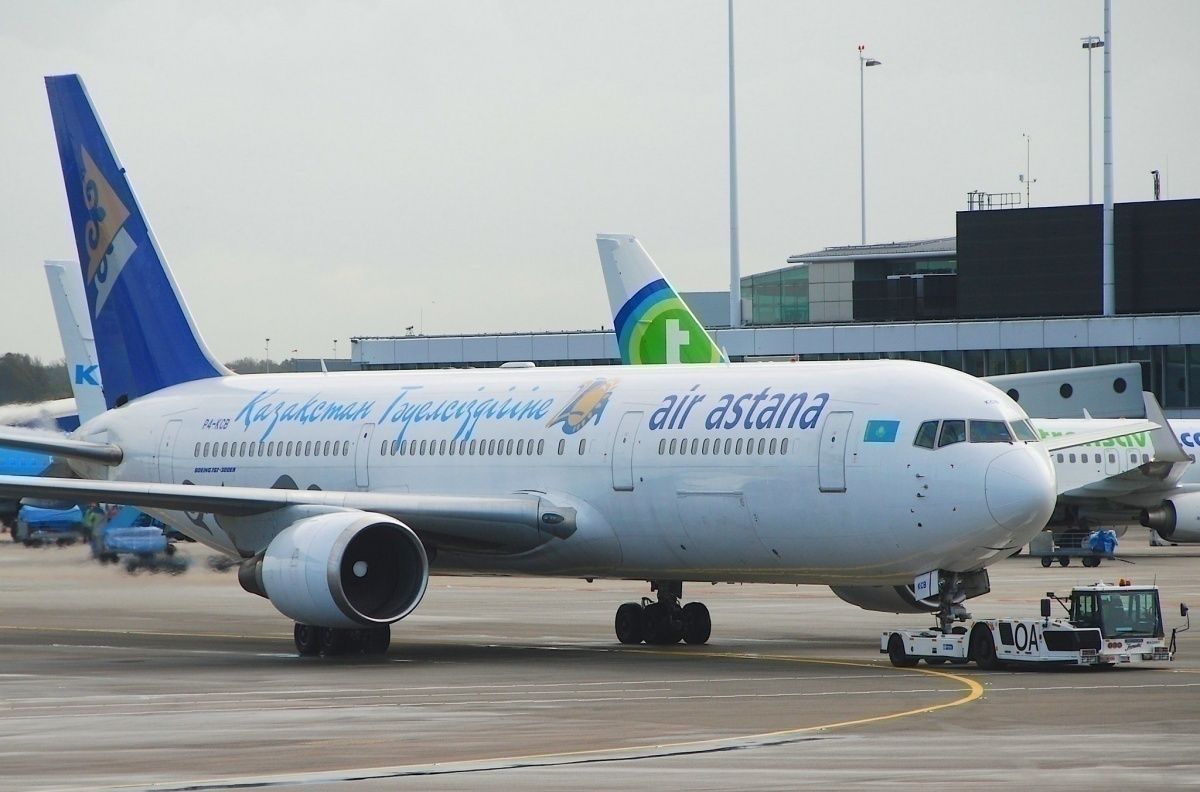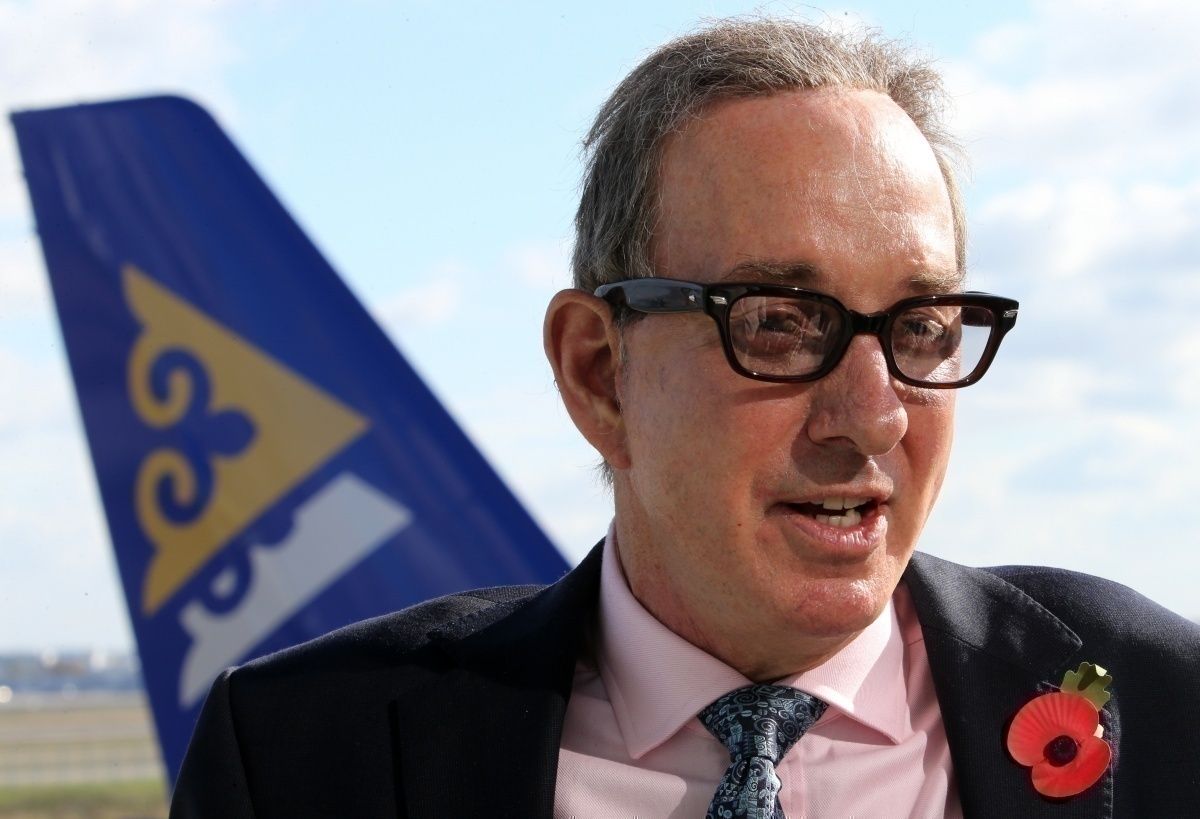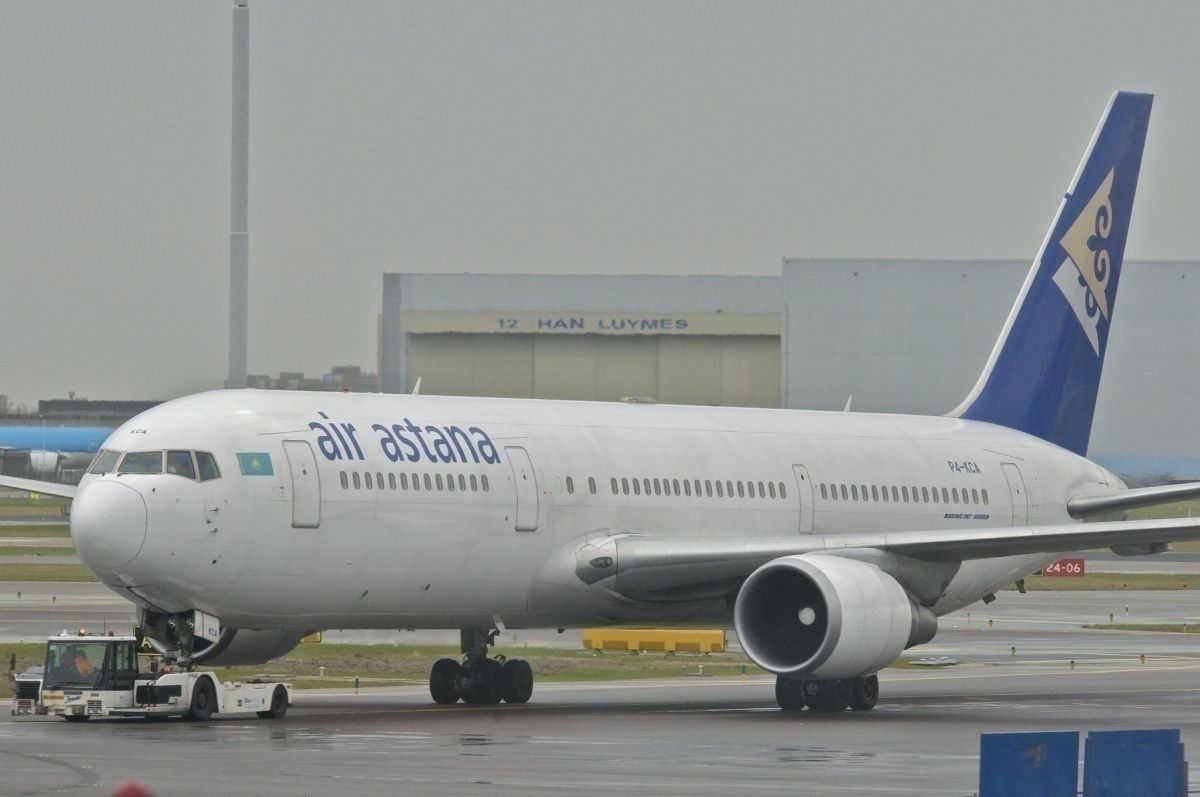As the corona crisis sweeps the globe, much of the focus is on the big-name carriers and how they are impacted. But there are hundreds of commercial airlines worldwide and most of them never make the headlines. One of those is Kazakhstan-based Air Astana. Earlier this week, its CEO, Peter Foster, did an extended interview with Forbes Kazakhstan. They asked him how Air Astana was going in the face of the corona crisis. The answer? We're down, but a long way from out.
The powerhouse airline of the 'Stans
Air Astana is the flag carrier of Kazakhstan. Flying out of Almaty, its fleet of 32 aircraft (a mix of Embraers, single-aisle Airbuses, and mid-sized twin-aisle Boeings) fly around the region and as far afield as Europe, the Middle East and Asia. The airline has been flying for less than 20 years and is a joint venture between Kazakhstan sovereign wealth fund, Sumruk-Kazyna (51% ownership), and BAE (49%).
Peter Foster has been running Air Astana since 2005. He earned his aviation stripes at John Swire and Sons, starting there as a management trainee. He later worked at Philippine Airlines. Between 2002 and 2005, he was CEO at Royal Brunei Airlines. During his tenure at Air Astana, the airline has both benefited from and contributed to steady overall growth in Kazakhstan.
Air Astana went into the corona crisis in good financial shape
Mr Foster told Forbes Kazakhstan that Air Astana went into 2020 in a sound financial position, having cash reserves enough for several months. He says the airline has not approached the Kazakhstan government for financial assistance. Nor does it plan to.
Saying the airline took the corona crisis very seriously from the outset, Mr Foster told Forbes Kazakhstan;
"The situation has been and is challenging; with changes every day as numerous countries introduced restrictions for on international flights at very short notice."
Air Astana had suspended all domestic flying from 22 March and all international flying from 1 April. While some ad hoc repatriation and FIFO flights are being operated, Air Astana joins the long list of grounded airlines.
Mr Foster says 7,350 flights were scheduled across March and April. When asked about the financial impact of the grounding, the airline boss estimated Air Astana was down USD$160 million over the last two months. Mr Foster said it was hard at this point to estimate what the total losses would be.
Air Astana follows textbook as it moves to survive the crisis
Like airlines everywhere, Air Astana is moving to conserve cash. The airline has most of its staff on paid leave and drawing down their entitlements. Employees can also take paid "advance" 2021 leave. The expectation is that staff will be brought back in stages as flights gradually resume.
Also like many other airlines in hiatus, Mr Foster is taking the downtime to re-evaluate his airline's future. How does he see Air Astana in a post corona world?
"Our Exit Plan will initially consist of a leaner and stripped-down operating and fleet plan designed to cover essential domestic and international business routes and generate cash. We may well defer some planned aircraft orders in the short-term but we must understand that as the strongest airline in the country and the region, more than ever we need to be fully prepared to take advantage of that when the market returns, as it will."
That's an approach behemoth airlines like Delta and Lufthansa are taking.
But as Mr Foster notes, everything except his planes is literally up in the air right now. He doesn't know when his planes will fly again. Peter Foster says the situation is outside the airline's control. But he seems pretty optimistic. With the sovereign wealth fund of an oil and mineral-rich country behind you, why wouldn't you be?
The way Mr Foster sees it, Air Astana is the strongest airline in the region. He wants it to stay that way. To do so, he needs to keep the airline in a state of readiness to seize opportunities as they emerge in a post corona world.



